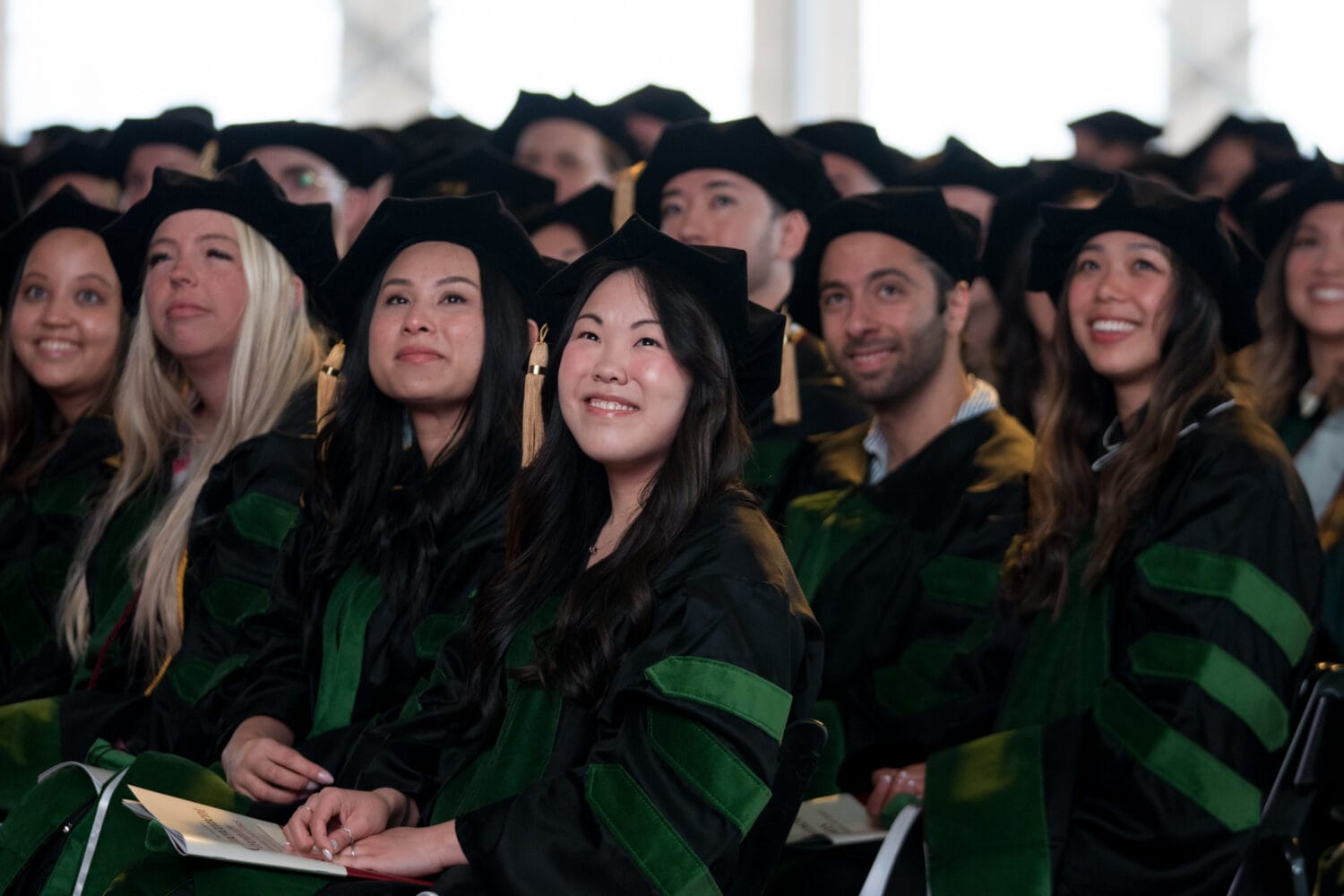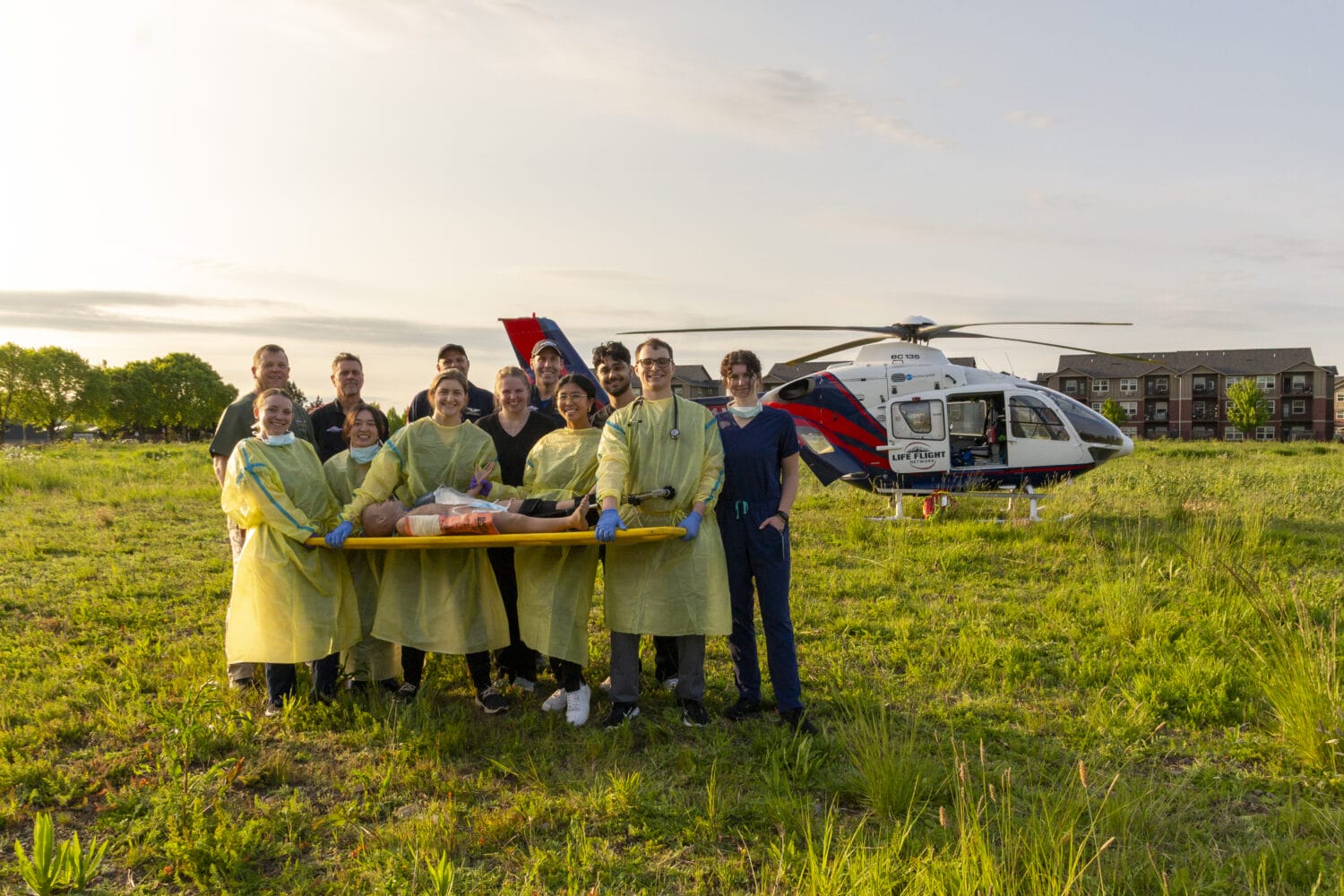Good sports
Dr. Alan Cundari has attended Montclair High School football games for more than 10 years, but he hasn’t watched a single touchdown drive.
“I make sure everybody gets up after every play,” Cundari said. “I don’t watch the game, I watch the players.”
Cundari started volunteering as the team physician in the mid-1990s. Faculty and alumni of Western University of Health Sciences in Pomona, Calif., volunteer at high schools throughout the area. Cundari, DO, is chair of the Department of Family Medicine in the College of Osteopathic Medicine of the Pacific at WesternU.
“It’s an important aspect of any physician or health care provider to give back to the community,” Cundari said.
If players get hurt, he assigns a student to watch them for the rest of the game to make sure they don’t have additional problems. Some players are taken to the training room after the game to evaluate and reassess their injuries. Worried parents come to him to find out how their children are doing.
“You’re able to relieve that,” Cundari said. “That’s kind of fun.”
Having a medical doctor on the football field is encouraged but not required because schools might not have the financial resources to hire one, said Emmy Zack, director of communications for the California Interscholastic Federation in Alameda, Calif.
“If somebody were to get injured, immediate medical attention could be beneficial,” she said. “But in some cases that’s not realistic. It may not be financially possible.”
Having a team doctor is a luxury, said Dave Dunn, athletic trainer for Montclair High School, and he appreciates Cundari’s help on the field.
“Some cases, I’m stumped,” he said. “It’s good to give an extra check to pick up anything I might have left out.”
But WesternU’s assistance extends beyond the football field. Students and faculty also give physicals to athletes in other sports. COMP and physician assistant students recently gave physicals to student athletes at Montclair High School participating in basketball, soccer and wrestling.
Without WesternU’s help, Montclair athletes would have to go to clinics to get physicals instead of getting a checkup on campus, Dunn said.
An athlete must have a physical once a year in order to play, he said. The exam lets the training team know of any health problems and special needs, such as having an inhaler for asthmatics, Dunn said.
WesternU students benefit as well, learning how to document their examination, how to interact with patients and how to focus their exams to find what they’re looking for, Cundari said.
Christine Grundeman, DO 2011, checked students’ eyes, ears, nose, throat, abdomen and reflexes.
“We check to make sure players don’t have pre-existing problems,” she said.
Physician assistant students practice examinations on each other, but going to the high school helps them take the added step of learning how to interact with patients, said Stacy Baecker, MSPA 2009.
“Patients are probably nervous and we’re a little nervous,” she said. “It’s remembering what you learned and putting it in practice. Don’t rush. Don’t do anything to bring them discomfort. It relates directly to what you learn in the classroom.”



